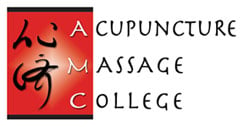CHINESE HERBAL MEDICINE
Chinese herbal medicine uses more than 600 different herbs prescribed in different combinations to treat specific diseases. There are hundreds of classic formulas, composed primarily of herbs of plant origin. Chinese herbal formulas take into consideration the therapeutic effect of each herb as well as the combined effect of the herbs when processed together.
After administering acupuncture treatments, a TCM practitioner often prescribes an herbal formula that enhances the energetic rebalancing efforts of acupuncture. The formula herbal combination and dosage changes over time to correspond with changes in the patient’s condition. Chinese herbal medicine is used internally and externally. Internal formulas are prepared as powders, teas (decoctions), extracts, and pills. External types are liniments, powders, extracts, pastes, and salves.
A formula typically consists of 4-20 herbs to treat related secondary aspects of the illness as well as the main pathology and to reduce side effects of individual herbs. Herbs have four properties: Temperature, taste, affinity, and primary action. Temperature characteristics are described as cooling or heating. Taste properties include: Sour, bitter, sweet, bland, spicy, and salty. Affinity refers to an herb’s relation to a particular organ system. Primary action is the effect of a specific herb. Combinations of these four properties result in herb formulas tailored to treat different conditions and yin/yang energy imbalances.
Common herbs used in formulas include: Astragalus for colds, Chinese angelica for anemia, Chinese yam for chronic cough and wheezing, eucommia bark for back and knee ache, ginger for circulation, ginseng for immune system, and licorice for allergies. Chinese herbal medicine is effective in treating digestive disorders, fatigue, influenza, chronic headaches, skin disorders, and rheumatoid arthritis, among other conditions. Chinese herbs are also effective in health maintenance and disease prevention. For more information on Chinese herbal medicine contact Dr. Richard Browne at 305-595-9500. To learn more about Chinese herbal medicine within TCM education ask for Joe Calareso.
"Written by Rev. Dr. Richard Browne
http://www.amcollege.edu

 (305) 595-9500
(305) 595-9500






